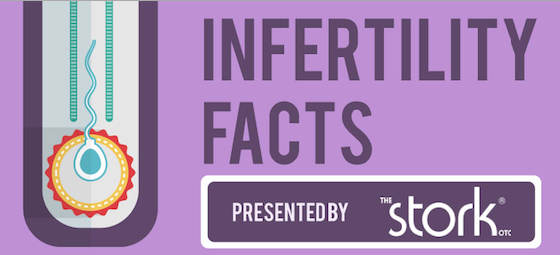 iStockphoto/Thinkstock
iStockphoto/Thinkstock
March is National Nutrition Month, one of my favorite subjects! I have seen tremendous results with many of my patients, just by embracing changes to the food they eat -- their food lifestyles, if you will.
Female issues or women’s health issues can take many different forms from irregular periods to bladder infections. Many issues related to menstruation can impact a women’s ability to conceive a child. Infertility issues can be positively enhanced by healthy nutrition, specifically healthy whole foods.
Infertility is becoming a growing issue for women in America and in 2007, Newsweek shone a light and showed a connection between food choices and increasing relationships for infertility. In the December 10, 2007 issue there was an article on “Fats, Carbs and the Science of Conception” which summarized the findings of the Nurses Health Study about the connection between food and fertility.
Before I share the findings I want to define glycemic load. The glycemic load is a way of determining how much carbohydrate is found in a food based on the amount, determined by the glycemic index (how much the food raises blood sugar) and portion size. This is a more accurate measure than just looking at the glycemic index because it takes into account the portion a person is eating.
Glycemic load measures how fast a food is converted into glucose or sugar in the blood. Women that eat highly processed food, junk foods, pastries, bread and pastas will have a high gycemic index.
The more complex the carbohydrates (slow carbs) the more slowly they turn to glucose in the blood. These foods contain fiber in the food and digests slowly causing a slower release of glucose into the blood. Women who eat these types of foods will have a low glycemic load.
The nurses’ health study found women with the highest glycemic load in their diets were 92 percent more likely to have ovulatory infertility than women in the lowest category. Ovulatory infertility means that ovaries, which are responsible for creating the maturing eggs, are not producing mature and viable eggs.
If the egg is unable to mature correctly, ovulation does not occur and fertilization of the egg and the sperm will not occur either. Women in the highest glycemic load category ate diets high in processed and refined carbohydrates, junkfood, sodas, cold cereals, white rice, potatoes.
Another finding was that women who ate diets high in trans fatty acids also had problems with ovulation. Women who had the highest intake of animal protein (115 grams per day almost 2 times the amount required by the Institute of Medicine) had a 39 percent higher chance of ovulatory infertility than the group that ate less protein.
The conclusion on how to increase the possibility for conception is a whole foods diet. Specific recommendations included increasing whole grains, increasing fruits and vegetables, increasing plant proteins and good oils. Each of these recommendations fall into the category of whole foods.
What does this mean for women having fertility problems? Simply that what you are eating does have an impact your fertility health. Nutrition, eating a healthy whole food diet, improves your chances of creating normal menstrual cycles that include ovulation and a chance for fertilization each month.
I have helped women who have had fertility problems get pregnant through using naturopathic treatment plans. A healthy whole foods diet is always a foundation of my plans with them. Over the course of the month I will talk about other women’s issues and don’t be surprised if eating a healthy whole foods diet is part of the solution to those problems too.
Dr. Dae
http://twitter.com/drdae
https://www.healthydaes.com
https://www.facebook.com/healthydaes
Dr. Dae is a Naturopathic Physician who practices in the Washington DC metro area treats the whole person using safe and effective combinations of traditional and natural methods to produce optimal health and well-being in the lives of her patients.
Sources:
Chavarro, Jorge, Walter Willett, and P. J. Skerrett. The fertility diet: groundbreaking research reveals natural ways to boost ovulation & improve your chances of getting pregnant. New York: McGraw-Hill, 2008. Print.
Fat, Carbs and the Science of Conception (In Newsweek Magazine)
The Daily Beast. Web. 6 Mar. 2012. http://www.thedailybeast.com/newsweek/2007/12/01/fat-carbs-and-the-science-of-conception.html
"Female fertility: Why lifestyle choices count - MayoClinic.com." Mayo Clinic. N.p., n.d. Web. 6 Mar. 2012. http://www.mayoclinic.com/health/female-fertility/MY01095
Reviewed March 7, 2012
by Michele Blacksberg RN
Edited by Jody Smith






Add a CommentComments
There are no comments yet. Be the first one and get the conversation started!